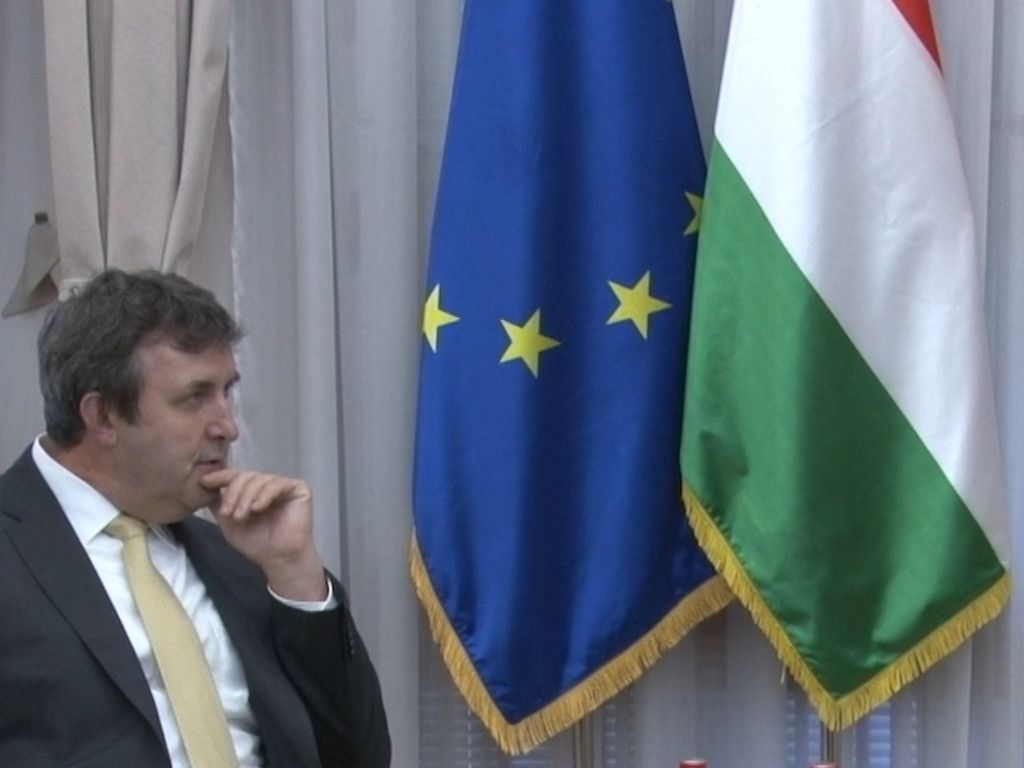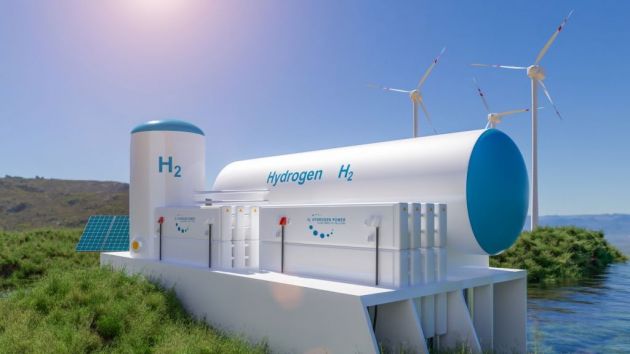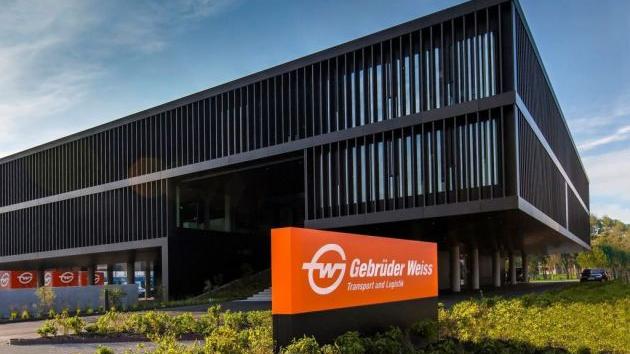Laszlo Palkovics, Minister of Technology and Industry of Hungary - Green hydrogen will store energy and drive vehicles and machines, cooperation with Serbia
Source: eKapija
 Wednesday, 27.07.2022.
Wednesday, 27.07.2022.
 09:10
09:10
 Wednesday, 27.07.2022.
Wednesday, 27.07.2022.
 09:10
09:10
(Photo: MTI/Sandor Idei)

And why green hydrogen - we ask the minister:
- In Hungary, we currently have 3 GW of solar capacity installed, 5 GW is currently being worked on and should be ready by 2024, and by 2030 we plan to have 12 GW. That is very good, but on the other hand, the availability of that energy depends on the weather conditions, and therefore it is necessary to ensure balancing. And that is an even larger problem in Hungary than in Serbia, because we cannot build reversible hydroelectric power plants, since we do not have mountains, and therefore no necessary heights. But there are other ways to store energy. There are also batteries - Hungary now has the largest capacity for their production in Europe after Germany - and, finally, wind energy (which is lacking in Hungary) and solar energy can be converted into another type of energy and this is where hydrogen comes into play.
eKapija: What is the potential of green hydrogen?
- The use of green hydrogen is possible in several areas, and apart from storing energy from other sources, primarily in traffic and industry. In Hungary, we have started a program to electrify transport, especially cars and buses, and we have also started ordering hydrogen-powered trains. We are making better progress than other countries, but we still have a lot to go. The plan is to replace 6,000 diesel buses with hydrogen-powered buses. As for vehicles, two possibilities open up. First, to directly burn hydrogen in internal combustion engines. Hydrogen-based synthetic fuel is CO2 neutral. Another option is to use hydrogen fuel cells to generate electricity that in turn powers the vehicle.
Apart from traffic, there are great possibilities of applying hydrogen in industry, for example, in steel production. The fertilizer industry also needs a substitute for gas.
eKapija: What did you agree upon at the meeting in Belgrade with the Serbian partners?
- We discussed the hydrogen economy. The Hungarian government adopted a hydrogen strategy two years ago, and we have been implementing it ever since, so we told the Serbian minister that we would be happy to share our experiences so far, as well as to look for possible joint programs. I will give you an example: we are currently working on a large project whose goal is to investigate how the existing underground gas storage can be used for a hydrogen mixture, and this storage is located right on the Serbian-Hungarian border.
We need to establish how the existing gas infrastructure – including pipelines – can be used for hydrogen. At the beginning, everyone noticed that hydrogen is very corrosive, however there are solutions to overcome this. Similarly, burning hydrogen requires materials more resistant to high temperatures. Then, the legal hurdles: currently, in Hungary, hydrogen is classified as a dangerous gas, which means that anyone handling it must have a special permit, and that will have to change.
It is also necessary to provide sufficiently cheap energy for obtaining green hydrogen, namely wind energy and solar energy. Even old nuclear power plants won`t do.
eKapija: Does Hungary produce hydrogen today?
- Currently, we only produce industrial hydrogen, but it is not "green". The new regulations stipulate, however, that whoever wants to build, for example a solar power plant, must also provide a certain capacity for energy storage. In our strategy, we have decided to create the so-called hydrogen valleys, near the nuclear power plant in Paks, as well as locations where there are significant solar capacities. In the vicinity of Miskolc, for example, we have installed 500 MW of solar energy.
eKapija: Have the Serbian authorities shown interest in all that?
- Absolutely. The Serbian government has the same problems as the Hungarian government: both countries is landlocked and they do not have many sources of energy, so our energy strategies should be somewhat similar.
eKapija: So, can we say that green hydrogen is the next big thing in energy?
- If we turn to hydrogen in Europe, we will produce it here, but it will not be sufficient, because both solar and wind power plants have their limits, and that means we will have to import it. And that is a business model similar to the one related to liquefied natural gas (LNG).
eKapija: You recently said that the intention of the Hungarian government is for the national economy to be "Hungarian, green and high-tech". What exactly does that mean?
- Green, that is something we can`t choose, it`s the only direction. High-tech is a fact - if you look at the IMF report from two years ago, when they evaluated the industries of different countries and determined the share of the high-tech category, Hungary reached 70%, same as Germany. According to this result, along with Germany and Denmark, Hungary is at the top of the OECD list. And the fact that the economy should be Hungarian means that we should have production in Hungary, not necessarily that it should be owned by Hungarians.
eKapija: You also stated that the Hungarian industry must be in the highest European rank.
- We have to improve the efficiency and productivity of Hungarian labor. We are there at about 75-80% of the German level, and this lag is not a consequence of international value chains, but of local Hungarian companies that still have problems with productivity. When it comes to costs, we stand well there. The investment rate in Hungary is 29%, the European average is 21-22%, and in the Visegrad Four countries 19%. So that`s where we are the best. And if you look at, for example, the battery industry, it is high-tech production, there are three companies present, and a fourth one is coming, as well as a complete supplier environment. In the automotive industry, Mercedes also announced the third phase of its factory in Kecskemet. I`d say we`re doing pretty well.
eKapija: You said that Hungary cannot be competitive internationally, without increasing the added value. How do you intend to achieve this?
- In general, if you don`t want to be an "extension" of the workforce of Germany and other industries, then, apart from production, you have to bring in some activities that create added value. However, that is already the case here. For example, in the field of R&D (research and development), Hungary is one of the most popular places, so Bosch already has 4,000 engineers there. Then, a strong local supply base is significant. This is also the case, as companies that got burned by long supply chains from China and across Asia, during the COVID-19 crisis and later due to the energy crisis, started sourcing more components in Europe and in the surrounding countries. There is also the relocation of activities from other countries, so for example Audi will start the production of the Cupra brand in Hungary, instead of Spain. Also, many higher-paying jobs, such as accounting, administration, supply management - all came to Hungary.
eKapija: So you are telling us that the Hungarian economy is on a good track, that it just needs to solve energy issues?
- If I had to rank the challenges ahead, number one is energy, definitely.
eKapija: Do you think that Serbia is in the same position?
- It has to be, since Serbia is on the same track, in the place where Hungary was five, ten years ago. I see the same international value chains, the same companies here and in Hungary, so there is not much difference. Basically, energy will be a challenge for Serbia as well - Minister Laszlo Palkovics concludes in the interview for eKapija.
Mirko Radonjic
eKapija: You also stated that the Hungarian industry must be in the highest European rank.
- We have to improve the efficiency and productivity of Hungarian labor. We are there at about 75-80% of the German level, and this lag is not a consequence of international value chains, but of local Hungarian companies that still have problems with productivity. When it comes to costs, we stand well there. The investment rate in Hungary is 29%, the European average is 21-22%, and in the Visegrad Four countries 19%. So that`s where we are the best. And if you look at, for example, the battery industry, it is high-tech production, there are three companies present, and a fourth one is coming, as well as a complete supplier environment. In the automotive industry, Mercedes also announced the third phase of its factory in Kecskemet. I`d say we`re doing pretty well.
eKapija: You said that Hungary cannot be competitive internationally, without increasing the added value. How do you intend to achieve this?
- In general, if you don`t want to be an "extension" of the workforce of Germany and other industries, then, apart from production, you have to bring in some activities that create added value. However, that is already the case here. For example, in the field of R&D (research and development), Hungary is one of the most popular places, so Bosch already has 4,000 engineers there. Then, a strong local supply base is significant. This is also the case, as companies that got burned by long supply chains from China and across Asia, during the COVID-19 crisis and later due to the energy crisis, started sourcing more components in Europe and in the surrounding countries. There is also the relocation of activities from other countries, so for example Audi will start the production of the Cupra brand in Hungary, instead of Spain. Also, many higher-paying jobs, such as accounting, administration, supply management - all came to Hungary.
eKapija: So you are telling us that the Hungarian economy is on a good track, that it just needs to solve energy issues?
- If I had to rank the challenges ahead, number one is energy, definitely.
eKapija: Do you think that Serbia is in the same position?
- It has to be, since Serbia is on the same track, in the place where Hungary was five, ten years ago. I see the same international value chains, the same companies here and in Hungary, so there is not much difference. Basically, energy will be a challenge for Serbia as well - Minister Laszlo Palkovics concludes in the interview for eKapija.
Mirko Radonjic
Tags:
Laszlo Palkovics
Hungarian Ministry of Technology and Industry
green hydrogen
renewable hydrogen
hydrogen
solar power plants
nuclear power plants
wind power plants
energy balancing
reversible hydropower plants
batteries
battery industry
energy storage
hydrogen economy
Hydrogen Strategy of Hungary
hydrogen valleys
rate investment
productivity
high tech
research and development
RD
Comments
Your comment
Naš izbor
Most Important News
Full information is available only to commercial users-subscribers and it is necessary to log in.
Follow the news, tenders, grants, legal regulations and reports on our portal.
Registracija na eKapiji vam omogućava pristup potpunim informacijama i dnevnom biltenu
Naš dnevni ekonomski bilten će stizati na vašu mejl adresu krajem svakog radnog dana. Bilteni su personalizovani prema interesovanjima svakog korisnika zasebno,
uz konsultacije sa našim ekspertima.


 Izdanje Srbija
Izdanje Srbija Serbische Ausgabe
Serbische Ausgabe Izdanje BiH
Izdanje BiH Izdanje Crna Gora
Izdanje Crna Gora


 News
News








